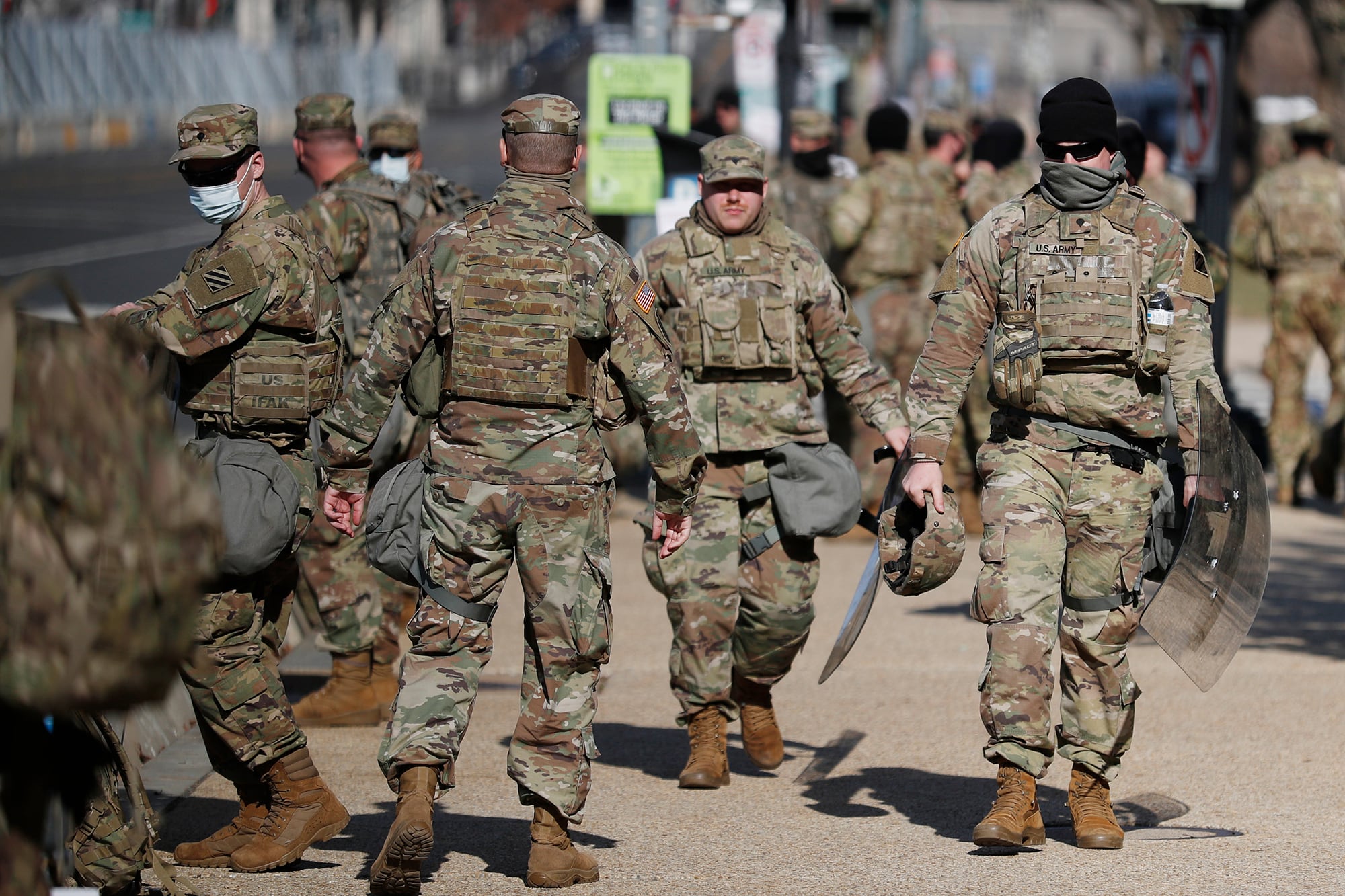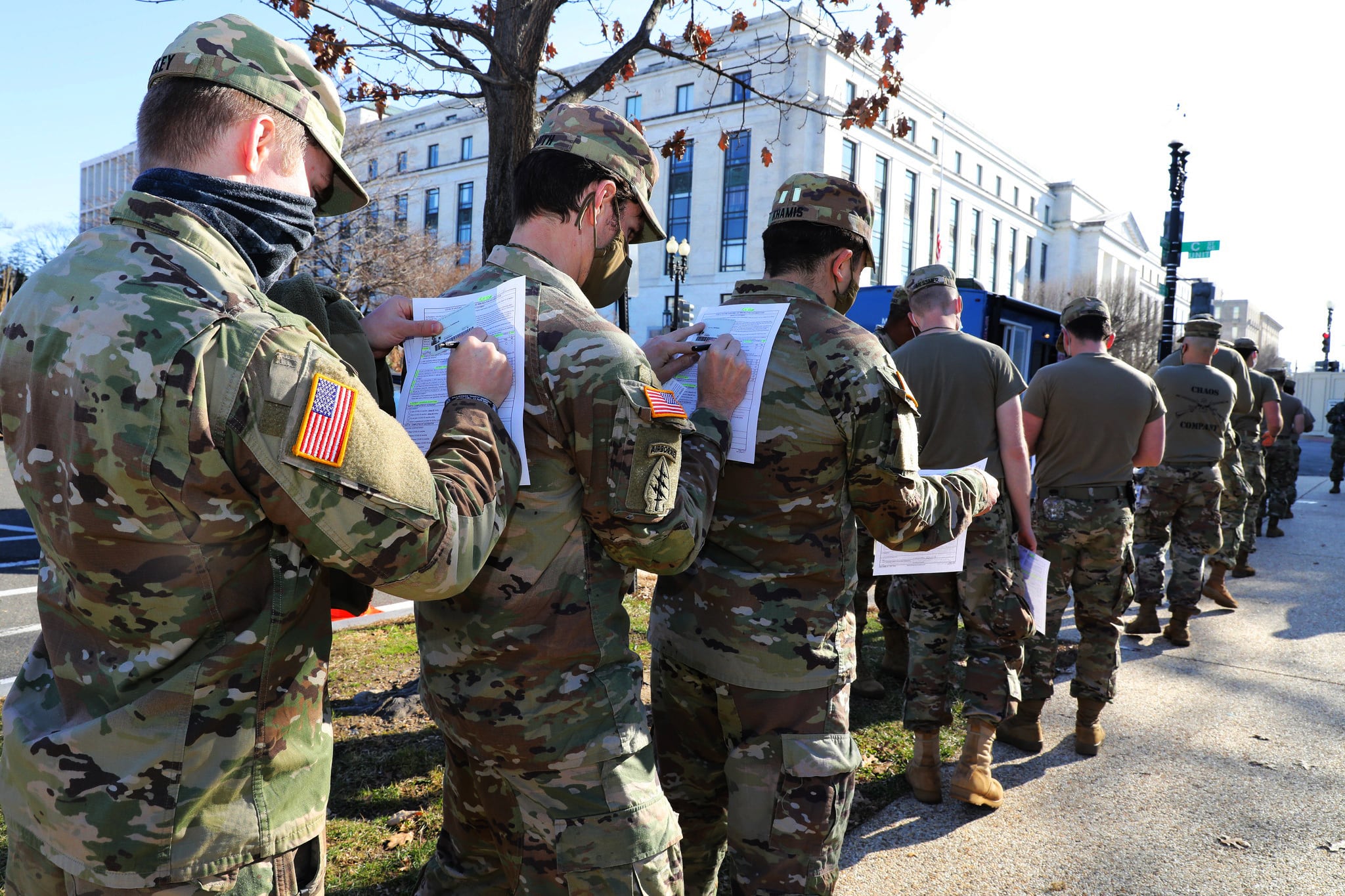In the nearly three weeks since more than 25,000 National Guard troops from around the country made their way to Washington to secure the Capitol ahead of President Joe Biden’s inauguration, nearly 200 of them have contracted the novel coronavirus, the head of the D.C. Guard told reporters on Monday.
Maj. Gen. William Walker could not say how many total are quarantined, but said that close contacts are tested after a soldier or airman comes up positive, with a 14-day isolation in Washington following diagnosis,
“I’m deeply troubled by the number,” Walker said.
Though mask-wearing is strictly enforced, troops are doing shifts as long as 12 hours standing side-by-side inside and outside on Capitol Hill, then taking indoor breaks, where photos have shown them lined up together taking naps or getting a meal throughout the corridors of the Hill.
RELATED

While nearly half of the deployed troops have made their way back to their home states, about 13,000 remain, and that number will dwindle down to 7,000 by the end of the week, Army Gen. Daniel Hokanson, the chief of the National Guard Bureau, told reporters.
The mission, originally activated by former Army Secretary Ryan McCarthy for 30 days, will stretch well into March. The remaining 7,000 will be spread across agencies, with 550 working with D.C’s Metropolitan Police Department, 500 with U.S. Park Police, 600 with the Secret Service and 5,000 with the Capitol Police.
The FBI has identified “several upcoming events,” acting Army Secretary John Whitley told reporters, that require troop presence, though he could not offer details. An impeachment trial for former President Donald Trump scheduled Feb. 8 has been offered as an example.
RELATED

“They’re concerned that there could be situation where there are lawful protests, First Amendment-protected protests, that could be used by malicious actors, or other problems that could emerge,” Whitley said.
On the question of when local law enforcement will be able to return to its mission without the help of the Guard, Whitley said the Army’s role has simply been to take requests and evaluate how they can help, not to push back against the use of troops.
“It’s certainly the policy of the Department of Defense that we believe that military forces should be used as a last resort,” he said. “We believe that all law enforcement options should be explored before military forces are called upon and asked to respond.”
Meghann Myers is the Pentagon bureau chief at Military Times. She covers operations, policy, personnel, leadership and other issues affecting service members.





